Drawbacks of Conventional Mental Health Therapies
Being mentally healthy implies living a reasonable life. One cannot be emotionally healthy while also being an unreasonable person. To be a reasonable person requires critical thinking. Yet mental health professionals generally lack an understanding of critical thinking and its vital importance to effective mental health therapies.
 It isn’t that mental health professionals never use critical thinking; in fact, all the best therapeutic approaches to mental health have a direct relationship with critical thinking. Clinicians, however, often do not choose the best mental health therapies, because they are frequently unclear as to the standards they should use in deciding on the best counseling strategies. Moreover, even when therapists select the best mental health therapies, they often don't apply them effectively – for this also requires critical thinking. And even the best approaches to mental health have limitations, the identification of which again demands critical thinking.
It isn’t that mental health professionals never use critical thinking; in fact, all the best therapeutic approaches to mental health have a direct relationship with critical thinking. Clinicians, however, often do not choose the best mental health therapies, because they are frequently unclear as to the standards they should use in deciding on the best counseling strategies. Moreover, even when therapists select the best mental health therapies, they often don't apply them effectively – for this also requires critical thinking. And even the best approaches to mental health have limitations, the identification of which again demands critical thinking.
Given the description of critical thinking in the previous section, it is clear that therapists typically neither use nor impart a comprehensive, explicit conception of critical thinking to clients because they are rarely, if ever, taught such a conception. They may themselves think critically to some degree on any number of topics, but they are limited by their lack of explicit knowledge of critical thinking theory when attempting to advance critical thinking in the therapeutic setting (assuming they are even making such an attempt). This in turn limits their ability to foster critical reasoning skills in clients’ thinking, which is what is done – either implicitly or explicitly – in a successful therapeutic setting aimed at mental health.

Thinking as an object of study has been given insufficient notice by psychologists, psychiatrists, social workers, and counselors throughout the histories of these professions. In fact, critical reasoning has never been at the heart of most mental health programs. There are some notable exceptions, but those exceptions are frequently given short shrift by mainstream mental health professionals. Instead of relying on the cultivation of critical, creative, and ethical reasoning for mental health, counselors still frequently rely on practices dubious or outright harmful. These include:
1. Asking people to re-create “bad memories” from their past and re-live them over and over, as in traditional analytic psychology using Freud’s approach.
2. Insisting that clients focus narrowly and shallowly on "feeling good," rather than on taking responsibility for their problematic thinking and behaviors, even where they cause problems for themselves or others.
3. Prescribing psychiatric medications uncautiously, often in amounts or for durations insufficiently tested in clinical settings, frequently with limited effectiveness, and sometimes causing great harm to clients.
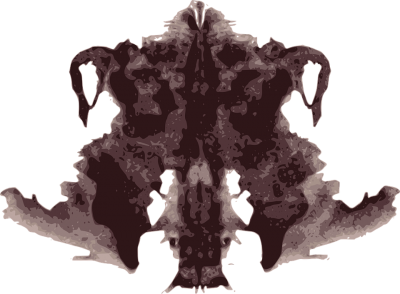 4. Using such archaic tools as the Rorschach inkblot test, which has no scientific evidence to support its employment; in the process, these clinicians make illogical deductions that can lead the patient in fruitless or even dangerous directions.
4. Using such archaic tools as the Rorschach inkblot test, which has no scientific evidence to support its employment; in the process, these clinicians make illogical deductions that can lead the patient in fruitless or even dangerous directions.
Therapists oftentimes ignore the essential role of ethical reasoning in the healthy person, being themselves frequently unclear as to the distinction between ethics and social ideologies. Many seem still to prefer to having their clients talk things out without clear direction, returning week after week to do so. But while a supportive therapeutic setting does seem to help those with mental health problems, a kind conversational partner will not change the overall structure and quality of clients’ reasoning; this requires the tools of critical reasoning. And even in cases where clinicians do introduce a few concepts relevant to critical reasoning, this is usually hit-or-miss and occurring at the implicit, rather than explicit, level.
{"id":"5737","title":"Drawbacks of Conventional Mental Health Therapies","author":"","content":"<p><span style=\"font-size: large;\">Being mentally healthy implies living a reasonable life. One cannot be emotionally healthy while also being an unreasonable person. To be a reasonable person requires critical thinking. Yet mental health professionals generally lack an understanding of critical thinking and its vital importance to effective mental health therapies. </span><br /><br /><span style=\"font-size: large;\"><img style=\"float: right; margin-left: 10px; margin-top: 5px; margin-bottom: 15px;\" src=\"https://www.criticalthinking.org/data/courses/Conventional_therapy.jpeg\" alt=\"\" width=\"340\" height=\"226\" />It isn’t that mental health professionals never use critical thinking; in fact, all the best therapeutic approaches to mental health have a direct relationship with critical thinking. Clinicians, however, often do not choose the best mental health therapies, because they are frequently unclear as to the standards they should use in deciding on the best counseling strategies. Moreover, even when therapists select the best mental health therapies, they often don't apply them effectively </span><!--[if gte mso 9]><xml> <o:OfficeDocumentSettings> <o:AllowPNG /> </o:OfficeDocumentSettings> </xml><![endif]--><!--[if gte mso 9]><xml> <w:WordDocument> <w:View>Normal</w:View> <w:Zoom>0</w:Zoom> <w:TrackMoves /> <w:TrackFormatting /> <w:PunctuationKerning /> <w:ValidateAgainstSchemas /> <w:SaveIfXMLInvalid>false</w:SaveIfXMLInvalid> <w:IgnoreMixedContent>false</w:IgnoreMixedContent> <w:AlwaysShowPlaceholderText>false</w:AlwaysShowPlaceholderText> <w:DoNotPromoteQF /> <w:LidThemeOther>EN-US</w:LidThemeOther> <w:LidThemeAsian>X-NONE</w:LidThemeAsian> <w:LidThemeComplexScript>X-NONE</w:LidThemeComplexScript> <w:Compatibility> <w:BreakWrappedTables /> <w:SnapToGridInCell /> <w:WrapTextWithPunct /> <w:UseAsianBreakRules /> <w:DontGrowAutofit /> <w:SplitPgBreakAndParaMark /> <w:EnableOpenTypeKerning /> <w:DontFlipMirrorIndents /> <w:OverrideTableStyleHps /> </w:Compatibility> <m:mathPr> <m:mathFont m:val=\"Cambria Math\" /> <m:brkBin m:val=\"before\" /> <m:brkBinSub m:val=\"--\" /> <m:smallFrac m:val=\"off\" /> <m:dispDef /> <m:lMargin m:val=\"0\" /> <m:rMargin m:val=\"0\" /> <m:defJc m:val=\"centerGroup\" /> <m:wrapIndent m:val=\"1440\" /> <m:intLim m:val=\"subSup\" /> <m:naryLim m:val=\"undOvr\" /> </m:mathPr></w:WordDocument> </xml><![endif]--><!--[if gte mso 9]><xml> <w:LatentStyles DefLockedState=\"false\" DefUnhideWhenUsed=\"false\" DefSemiHidden=\"false\" DefQFormat=\"false\" DefPriority=\"99\" LatentStyleCount=\"376\"> <w:LsdException Locked=\"false\" Priority=\"0\" QFormat=\"true\" Name=\"Normal\" /> <w:LsdException Locked=\"false\" Priority=\"9\" QFormat=\"true\" Name=\"heading 1\" /> <w:LsdException Locked=\"false\" Priority=\"9\" SemiHidden=\"true\" UnhideWhenUsed=\"true\" QFormat=\"true\" Name=\"heading 2\" /> <w:LsdException Locked=\"false\" Priority=\"9\" SemiHidden=\"true\" UnhideWhenUsed=\"true\" QFormat=\"true\" Name=\"heading 3\" /> <w:LsdException Locked=\"false\" Priority=\"9\" SemiHidden=\"true\" UnhideWhenUsed=\"true\" QFormat=\"true\" Name=\"heading 4\" /> <w:LsdException Locked=\"false\" Priority=\"9\" SemiHidden=\"true\" UnhideWhenUsed=\"true\" QFormat=\"true\" Name=\"heading 5\" /> <w:LsdException Locked=\"false\" Priority=\"9\" SemiHidden=\"true\" UnhideWhenUsed=\"true\" QFormat=\"true\" Name=\"heading 6\" /> <w:LsdException Locked=\"false\" Priority=\"9\" SemiHidden=\"true\" UnhideWhenUsed=\"true\" QFormat=\"true\" Name=\"heading 7\" /> <w:LsdException Locked=\"false\" Priority=\"9\" SemiHidden=\"true\" UnhideWhenUsed=\"true\" QFormat=\"true\" Name=\"heading 8\" /> <w:LsdException Locked=\"false\" Priority=\"9\" SemiHidden=\"true\" UnhideWhenUsed=\"true\" QFormat=\"true\" Name=\"heading 9\" /> <w:LsdException Locked=\"false\" SemiHidden=\"true\" UnhideWhenUsed=\"true\" Name=\"index 1\" /> <w:LsdException Locked=\"false\" SemiHidden=\"true\" UnhideWhenUsed=\"true\" Name=\"index 2\" /> <w:LsdException Locked=\"false\" SemiHidden=\"true\" UnhideWhenUsed=\"true\" Name=\"index 3\" /> <w:LsdException Locked=\"false\" SemiHidden=\"true\" UnhideWhenUsed=\"true\" Name=\"index 4\" /> <w:LsdException Locked=\"false\" SemiHidden=\"true\" UnhideWhenUsed=\"true\" Name=\"index 5\" /> <w:LsdException Locked=\"false\" SemiHidden=\"true\" UnhideWhenUsed=\"true\" Name=\"index 6\" /> <w:LsdException Locked=\"false\" SemiHidden=\"true\" UnhideWhenUsed=\"true\" Name=\"index 7\" /> <w:LsdException Locked=\"false\" SemiHidden=\"true\" UnhideWhenUsed=\"true\" Name=\"index 8\" /> <w:LsdException Locked=\"false\" SemiHidden=\"true\" UnhideWhenUsed=\"true\" Name=\"index 9\" /> <w:LsdException Locked=\"false\" Priority=\"39\" SemiHidden=\"true\" UnhideWhenUsed=\"true\" Name=\"toc 1\" /> <w:LsdException Locked=\"false\" Priority=\"39\" SemiHidden=\"true\" UnhideWhenUsed=\"true\" Name=\"toc 2\" /> <w:LsdException Locked=\"false\" Priority=\"39\" SemiHidden=\"true\" UnhideWhenUsed=\"true\" Name=\"toc 3\" /> <w:LsdException Locked=\"false\" Priority=\"39\" SemiHidden=\"true\" UnhideWhenUsed=\"true\" Name=\"toc 4\" /> <w:LsdException Locked=\"false\" Priority=\"39\" SemiHidden=\"true\" UnhideWhenUsed=\"true\" Name=\"toc 5\" /> <w:LsdException Locked=\"false\" Priority=\"39\" SemiHidden=\"true\" UnhideWhenUsed=\"true\" Name=\"toc 6\" /> <w:LsdException Locked=\"false\" Priority=\"39\" SemiHidden=\"true\" UnhideWhenUsed=\"true\" Name=\"toc 7\" /> <w:LsdException Locked=\"false\" Priority=\"39\" SemiHidden=\"true\" UnhideWhenUsed=\"true\" Name=\"toc 8\" /> <w:LsdException Locked=\"false\" Priority=\"39\" SemiHidden=\"true\" UnhideWhenUsed=\"true\" Name=\"toc 9\" /> <w:LsdException Locked=\"false\" SemiHidden=\"true\" UnhideWhenUsed=\"true\" Name=\"Normal Indent\" /> <w:LsdException Locked=\"false\" SemiHidden=\"true\" UnhideWhenUsed=\"true\" Name=\"footnote text\" /> <w:LsdException Locked=\"false\" SemiHidden=\"true\" UnhideWhenUsed=\"true\" Name=\"annotation text\" /> <w:LsdException Locked=\"false\" SemiHidden=\"true\" UnhideWhenUsed=\"true\" Name=\"header\" /> <w:LsdException Locked=\"false\" SemiHidden=\"true\" UnhideWhenUsed=\"true\" Name=\"footer\" /> <w:LsdException Locked=\"false\" SemiHidden=\"true\" UnhideWhenUsed=\"true\" Name=\"index heading\" /> <w:LsdException Locked=\"false\" Priority=\"35\" SemiHidden=\"true\" UnhideWhenUsed=\"true\" QFormat=\"true\" Name=\"caption\" /> <w:LsdException Locked=\"false\" SemiHidden=\"true\" UnhideWhenUsed=\"true\" Name=\"table of figures\" /> <w:LsdException Locked=\"false\" SemiHidden=\"true\" UnhideWhenUsed=\"true\" Name=\"envelope address\" /> <w:LsdException Locked=\"false\" SemiHidden=\"true\" UnhideWhenUsed=\"true\" Name=\"envelope return\" /> <w:LsdException Locked=\"false\" SemiHidden=\"true\" UnhideWhenUsed=\"true\" Name=\"footnote reference\" /> <w:LsdException Locked=\"false\" SemiHidden=\"true\" UnhideWhenUsed=\"true\" Name=\"annotation reference\" /> <w:LsdException Locked=\"false\" SemiHidden=\"true\" UnhideWhenUsed=\"true\" Name=\"line number\" /> <w:LsdException Locked=\"false\" SemiHidden=\"true\" UnhideWhenUsed=\"true\" Name=\"page number\" /> <w:LsdException Locked=\"false\" SemiHidden=\"true\" UnhideWhenUsed=\"true\" Name=\"endnote reference\" /> <w:LsdException Locked=\"false\" SemiHidden=\"true\" UnhideWhenUsed=\"true\" Name=\"endnote text\" /> <w:LsdException Locked=\"false\" SemiHidden=\"true\" UnhideWhenUsed=\"true\" Name=\"table of authorities\" /> <w:LsdException Locked=\"false\" SemiHidden=\"true\" UnhideWhenUsed=\"true\" Name=\"macro\" /> <w:LsdException Locked=\"false\" SemiHidden=\"true\" UnhideWhenUsed=\"true\" Name=\"toa heading\" /> <w:LsdException Locked=\"false\" SemiHidden=\"true\" UnhideWhenUsed=\"true\" Name=\"List\" /> <w:LsdException Locked=\"false\" SemiHidden=\"true\" UnhideWhenUsed=\"true\" Name=\"List Bullet\" /> <w:LsdException Locked=\"false\" SemiHidden=\"true\" UnhideWhenUsed=\"true\" Name=\"List Number\" /> <w:LsdException Locked=\"false\" SemiHidden=\"true\" UnhideWhenUsed=\"true\" Name=\"List 2\" /> <w:LsdException Locked=\"false\" SemiHidden=\"true\" UnhideWhenUsed=\"true\" Name=\"List 3\" /> <w:LsdException Locked=\"false\" SemiHidden=\"true\" UnhideWhenUsed=\"true\" Name=\"List 4\" /> <w:LsdException Locked=\"false\" SemiHidden=\"true\" UnhideWhenUsed=\"true\" Name=\"List 5\" /> <w:LsdException Locked=\"false\" SemiHidden=\"true\" UnhideWhenUsed=\"true\" Name=\"List Bullet 2\" /> <w:LsdException Locked=\"false\" SemiHidden=\"true\" UnhideWhenUsed=\"true\" Name=\"List Bullet 3\" /> <w:LsdException Locked=\"false\" SemiHidden=\"true\" UnhideWhenUsed=\"true\" Name=\"List Bullet 4\" /> <w:LsdException Locked=\"false\" SemiHidden=\"true\" UnhideWhenUsed=\"true\" Name=\"List Bullet 5\" /> <w:LsdException Locked=\"false\" SemiHidden=\"true\" UnhideWhenUsed=\"true\" Name=\"List Number 2\" /> <w:LsdException Locked=\"false\" SemiHidden=\"true\" UnhideWhenUsed=\"true\" Name=\"List Number 3\" /> <w:LsdException Locked=\"false\" SemiHidden=\"true\" UnhideWhenUsed=\"true\" Name=\"List Number 4\" /> <w:LsdException Locked=\"false\" SemiHidden=\"true\" UnhideWhenUsed=\"true\" Name=\"List Number 5\" /> <w:LsdException Locked=\"false\" Priority=\"10\" QFormat=\"true\" Name=\"Title\" /> <w:LsdException Locked=\"false\" SemiHidden=\"true\" UnhideWhenUsed=\"true\" Name=\"Closing\" /> <w:LsdException Locked=\"false\" SemiHidden=\"true\" UnhideWhenUsed=\"true\" Name=\"Signature\" /> <w:LsdException Locked=\"false\" Priority=\"1\" SemiHidden=\"true\" UnhideWhenUsed=\"true\" Name=\"Default Paragraph Font\" /> <w:LsdException Locked=\"false\" SemiHidden=\"true\" UnhideWhenUsed=\"true\" Name=\"Body Text\" /> <w:LsdException Locked=\"false\" SemiHidden=\"true\" UnhideWhenUsed=\"true\" Name=\"Body Text Indent\" /> <w:LsdException Locked=\"false\" SemiHidden=\"true\" UnhideWhenUsed=\"true\" Name=\"List Continue\" /> <w:LsdException Locked=\"false\" SemiHidden=\"true\" UnhideWhenUsed=\"true\" Name=\"List Continue 2\" /> <w:LsdException Locked=\"false\" SemiHidden=\"true\" UnhideWhenUsed=\"true\" Name=\"List Continue 3\" /> <w:LsdException Locked=\"false\" SemiHidden=\"true\" UnhideWhenUsed=\"true\" Name=\"List Continue 4\" /> <w:LsdException Locked=\"false\" SemiHidden=\"true\" UnhideWhenUsed=\"true\" Name=\"List Continue 5\" /> <w:LsdException Locked=\"false\" SemiHidden=\"true\" UnhideWhenUsed=\"true\" Name=\"Message Header\" /> <w:LsdException Locked=\"false\" Priority=\"11\" QFormat=\"true\" Name=\"Subtitle\" /> <w:LsdException Locked=\"false\" SemiHidden=\"true\" UnhideWhenUsed=\"true\" Name=\"Salutation\" /> <w:LsdException Locked=\"false\" SemiHidden=\"true\" UnhideWhenUsed=\"true\" Name=\"Date\" /> <w:LsdException Locked=\"false\" SemiHidden=\"true\" UnhideWhenUsed=\"true\" Name=\"Body Text First Indent\" /> <w:LsdException Locked=\"false\" SemiHidden=\"true\" UnhideWhenUsed=\"true\" Name=\"Body Text First Indent 2\" /> <w:LsdException Locked=\"false\" SemiHidden=\"true\" UnhideWhenUsed=\"true\" Name=\"Note Heading\" /> <w:LsdException Locked=\"false\" SemiHidden=\"true\" UnhideWhenUsed=\"true\" Name=\"Body Text 2\" /> <w:LsdException Locked=\"false\" SemiHidden=\"true\" UnhideWhenUsed=\"true\" Name=\"Body Text 3\" /> <w:LsdException Locked=\"false\" SemiHidden=\"true\" UnhideWhenUsed=\"true\" Name=\"Body Text Indent 2\" /> <w:LsdException Locked=\"false\" SemiHidden=\"true\" UnhideWhenUsed=\"true\" Name=\"Body Text Indent 3\" /> <w:LsdException Locked=\"false\" SemiHidden=\"true\" UnhideWhenUsed=\"true\" Name=\"Block Text\" /> <w:LsdException Locked=\"false\" SemiHidden=\"true\" UnhideWhenUsed=\"true\" Name=\"Hyperlink\" /> <w:LsdException Locked=\"false\" SemiHidden=\"true\" UnhideWhenUsed=\"true\" Name=\"FollowedHyperlink\" /> <w:LsdException Locked=\"false\" Priority=\"22\" QFormat=\"true\" Name=\"Strong\" /> <w:LsdException Locked=\"false\" Priority=\"20\" QFormat=\"true\" Name=\"Emphasis\" /> <w:LsdException Locked=\"false\" SemiHidden=\"true\" UnhideWhenUsed=\"true\" Name=\"Document Map\" /> <w:LsdException Locked=\"false\" SemiHidden=\"true\" UnhideWhenUsed=\"true\" Name=\"Plain Text\" /> <w:LsdException Locked=\"false\" SemiHidden=\"true\" UnhideWhenUsed=\"true\" Name=\"E-mail Signature\" /> <w:LsdException Locked=\"false\" SemiHidden=\"true\" UnhideWhenUsed=\"true\" Name=\"HTML Top of Form\" /> <w:LsdException Locked=\"false\" SemiHidden=\"true\" UnhideWhenUsed=\"true\" Name=\"HTML Bottom of Form\" /> <w:LsdException Locked=\"false\" SemiHidden=\"true\" UnhideWhenUsed=\"true\" Name=\"Normal (Web)\" /> <w:LsdException Locked=\"false\" SemiHidden=\"true\" UnhideWhenUsed=\"true\" Name=\"HTML Acronym\" /> <w:LsdException Locked=\"false\" SemiHidden=\"true\" UnhideWhenUsed=\"true\" Name=\"HTML Address\" /> <w:LsdException Locked=\"false\" SemiHidden=\"true\" UnhideWhenUsed=\"true\" Name=\"HTML Cite\" /> <w:LsdException Locked=\"false\" SemiHidden=\"true\" UnhideWhenUsed=\"true\" Name=\"HTML Code\" /> <w:LsdException Locked=\"false\" SemiHidden=\"true\" UnhideWhenUsed=\"true\" Name=\"HTML Definition\" /> <w:LsdException Locked=\"false\" SemiHidden=\"true\" UnhideWhenUsed=\"true\" Name=\"HTML Keyboard\" /> <w:LsdException Locked=\"false\" SemiHidden=\"true\" UnhideWhenUsed=\"true\" Name=\"HTML Preformatted\" /> <w:LsdException Locked=\"false\" SemiHidden=\"true\" UnhideWhenUsed=\"true\" Name=\"HTML Sample\" /> <w:LsdException Locked=\"false\" SemiHidden=\"true\" UnhideWhenUsed=\"true\" Name=\"HTML Typewriter\" /> <w:LsdException Locked=\"false\" SemiHidden=\"true\" UnhideWhenUsed=\"true\" Name=\"HTML Variable\" /> <w:LsdException Locked=\"false\" SemiHidden=\"true\" UnhideWhenUsed=\"true\" Name=\"Normal Table\" /> <w:LsdException Locked=\"false\" SemiHidden=\"true\" UnhideWhenUsed=\"true\" Name=\"annotation subject\" /> <w:LsdException Locked=\"false\" SemiHidden=\"true\" UnhideWhenUsed=\"true\" Name=\"No List\" /> <w:LsdException Locked=\"false\" SemiHidden=\"true\" UnhideWhenUsed=\"true\" Name=\"Outline List 1\" /> <w:LsdException Locked=\"false\" SemiHidden=\"true\" UnhideWhenUsed=\"true\" Name=\"Outline List 2\" /> <w:LsdException Locked=\"false\" SemiHidden=\"true\" UnhideWhenUsed=\"true\" Name=\"Outline List 3\" /> <w:LsdException Locked=\"false\" SemiHidden=\"true\" UnhideWhenUsed=\"true\" Name=\"Table Simple 1\" /> <w:LsdException Locked=\"false\" SemiHidden=\"true\" UnhideWhenUsed=\"true\" Name=\"Table Simple 2\" /> <w:LsdException Locked=\"false\" SemiHidden=\"true\" UnhideWhenUsed=\"true\" Name=\"Table Simple 3\" /> <w:LsdException Locked=\"false\" SemiHidden=\"true\" UnhideWhenUsed=\"true\" Name=\"Table Classic 1\" /> <w:LsdException Locked=\"false\" SemiHidden=\"true\" UnhideWhenUsed=\"true\" Name=\"Table Classic 2\" /> <w:LsdException Locked=\"false\" SemiHidden=\"true\" UnhideWhenUsed=\"true\" Name=\"Table Classic 3\" /> <w:LsdException Locked=\"false\" SemiHidden=\"true\" UnhideWhenUsed=\"true\" Name=\"Table Classic 4\" /> <w:LsdException Locked=\"false\" SemiHidden=\"true\" UnhideWhenUsed=\"true\" Name=\"Table Colorful 1\" /> <w:LsdException Locked=\"false\" SemiHidden=\"true\" UnhideWhenUsed=\"true\" Name=\"Table Colorful 2\" /> <w:LsdException Locked=\"false\" SemiHidden=\"true\" UnhideWhenUsed=\"true\" Name=\"Table Colorful 3\" /> <w:LsdException Locked=\"false\" SemiHidden=\"true\" UnhideWhenUsed=\"true\" Name=\"Table Columns 1\" /> <w:LsdException Locked=\"false\" SemiHidden=\"true\" UnhideWhenUsed=\"true\" Name=\"Table Columns 2\" /> <w:LsdException Locked=\"false\" SemiHidden=\"true\" UnhideWhenUsed=\"true\" Name=\"Table Columns 3\" /> <w:LsdException Locked=\"false\" SemiHidden=\"true\" UnhideWhenUsed=\"true\" Name=\"Table Columns 4\" /> <w:LsdException Locked=\"false\" SemiHidden=\"true\" UnhideWhenUsed=\"true\" Name=\"Table Columns 5\" /> <w:LsdException Locked=\"false\" SemiHidden=\"true\" UnhideWhenUsed=\"true\" Name=\"Table Grid 1\" /> <w:LsdException Locked=\"false\" SemiHidden=\"true\" UnhideWhenUsed=\"true\" Name=\"Table Grid 2\" /> <w:LsdException Locked=\"false\" SemiHidden=\"true\" UnhideWhenUsed=\"true\" Name=\"Table Grid 3\" /> <w:LsdException Locked=\"false\" SemiHidden=\"true\" UnhideWhenUsed=\"true\" Name=\"Table Grid 4\" /> <w:LsdException Locked=\"false\" SemiHidden=\"true\" UnhideWhenUsed=\"true\" Name=\"Table Grid 5\" /> <w:LsdException Locked=\"false\" SemiHidden=\"true\" UnhideWhenUsed=\"true\" Name=\"Table Grid 6\" /> <w:LsdException Locked=\"false\" SemiHidden=\"true\" UnhideWhenUsed=\"true\" Name=\"Table Grid 7\" /> <w:LsdException Locked=\"false\" SemiHidden=\"true\" UnhideWhenUsed=\"true\" Name=\"Table Grid 8\" /> <w:LsdException Locked=\"false\" SemiHidden=\"true\" UnhideWhenUsed=\"true\" Name=\"Table List 1\" /> <w:LsdException Locked=\"false\" SemiHidden=\"true\" UnhideWhenUsed=\"true\" Name=\"Table List 2\" /> <w:LsdException Locked=\"false\" SemiHidden=\"true\" UnhideWhenUsed=\"true\" Name=\"Table List 3\" /> <w:LsdException Locked=\"false\" SemiHidden=\"true\" UnhideWhenUsed=\"true\" Name=\"Table List 4\" /> <w:LsdException Locked=\"false\" SemiHidden=\"true\" UnhideWhenUsed=\"true\" Name=\"Table List 5\" /> <w:LsdException Locked=\"false\" SemiHidden=\"true\" UnhideWhenUsed=\"true\" Name=\"Table List 6\" /> <w:LsdException Locked=\"false\" SemiHidden=\"true\" UnhideWhenUsed=\"true\" Name=\"Table List 7\" /> <w:LsdException Locked=\"false\" SemiHidden=\"true\" UnhideWhenUsed=\"true\" Name=\"Table List 8\" /> <w:LsdException Locked=\"false\" SemiHidden=\"true\" UnhideWhenUsed=\"true\" Name=\"Table 3D effects 1\" /> <w:LsdException Locked=\"false\" SemiHidden=\"true\" UnhideWhenUsed=\"true\" Name=\"Table 3D effects 2\" /> <w:LsdException Locked=\"false\" SemiHidden=\"true\" UnhideWhenUsed=\"true\" Name=\"Table 3D effects 3\" /> <w:LsdException Locked=\"false\" SemiHidden=\"true\" UnhideWhenUsed=\"true\" Name=\"Table Contemporary\" /> <w:LsdException Locked=\"false\" SemiHidden=\"true\" UnhideWhenUsed=\"true\" Name=\"Table Elegant\" /> <w:LsdException Locked=\"false\" SemiHidden=\"true\" UnhideWhenUsed=\"true\" Name=\"Table Professional\" /> <w:LsdException Locked=\"false\" SemiHidden=\"true\" UnhideWhenUsed=\"true\" Name=\"Table Subtle 1\" /> <w:LsdException Locked=\"false\" SemiHidden=\"true\" UnhideWhenUsed=\"true\" Name=\"Table Subtle 2\" /> <w:LsdException Locked=\"false\" SemiHidden=\"true\" UnhideWhenUsed=\"true\" Name=\"Table Web 1\" /> <w:LsdException Locked=\"false\" SemiHidden=\"true\" UnhideWhenUsed=\"true\" Name=\"Table Web 2\" /> <w:LsdException Locked=\"false\" SemiHidden=\"true\" UnhideWhenUsed=\"true\" Name=\"Table Web 3\" /> <w:LsdException Locked=\"false\" SemiHidden=\"true\" UnhideWhenUsed=\"true\" Name=\"Balloon Text\" /> <w:LsdException Locked=\"false\" Priority=\"39\" Name=\"Table Grid\" /> <w:LsdException Locked=\"false\" SemiHidden=\"true\" UnhideWhenUsed=\"true\" Name=\"Table Theme\" /> <w:LsdException Locked=\"false\" SemiHidden=\"true\" Name=\"Placeholder Text\" /> <w:LsdException Locked=\"false\" Priority=\"1\" QFormat=\"true\" Name=\"No Spacing\" /> <w:LsdException Locked=\"false\" Priority=\"60\" Name=\"Light Shading\" /> <w:LsdException Locked=\"false\" Priority=\"61\" Name=\"Light List\" /> <w:LsdException Locked=\"false\" Priority=\"62\" Name=\"Light Grid\" /> <w:LsdException Locked=\"false\" Priority=\"63\" Name=\"Medium Shading 1\" /> <w:LsdException Locked=\"false\" Priority=\"64\" Name=\"Medium Shading 2\" /> <w:LsdException Locked=\"false\" Priority=\"65\" Name=\"Medium List 1\" /> <w:LsdException Locked=\"false\" Priority=\"66\" Name=\"Medium List 2\" /> <w:LsdException Locked=\"false\" Priority=\"67\" Name=\"Medium Grid 1\" /> <w:LsdException Locked=\"false\" Priority=\"68\" Name=\"Medium Grid 2\" /> <w:LsdException Locked=\"false\" Priority=\"69\" Name=\"Medium Grid 3\" /> <w:LsdException Locked=\"false\" Priority=\"70\" Name=\"Dark List\" /> <w:LsdException Locked=\"false\" Priority=\"71\" Name=\"Colorful Shading\" /> <w:LsdException Locked=\"false\" Priority=\"72\" Name=\"Colorful List\" /> <w:LsdException Locked=\"false\" Priority=\"73\" Name=\"Colorful Grid\" /> <w:LsdException Locked=\"false\" Priority=\"60\" Name=\"Light Shading Accent 1\" /> <w:LsdException Locked=\"false\" Priority=\"61\" Name=\"Light List Accent 1\" /> <w:LsdException Locked=\"false\" Priority=\"62\" Name=\"Light Grid Accent 1\" /> <w:LsdException Locked=\"false\" Priority=\"63\" Name=\"Medium Shading 1 Accent 1\" /> <w:LsdException Locked=\"false\" Priority=\"64\" Name=\"Medium Shading 2 Accent 1\" /> <w:LsdException Locked=\"false\" Priority=\"65\" Name=\"Medium List 1 Accent 1\" /> <w:LsdException Locked=\"false\" SemiHidden=\"true\" Name=\"Revision\" /> <w:LsdException Locked=\"false\" Priority=\"34\" QFormat=\"true\" Name=\"List Paragraph\" /> <w:LsdException Locked=\"false\" Priority=\"29\" QFormat=\"true\" Name=\"Quote\" /> <w:LsdException Locked=\"false\" Priority=\"30\" QFormat=\"true\" Name=\"Intense Quote\" /> <w:LsdException Locked=\"false\" Priority=\"66\" Name=\"Medium List 2 Accent 1\" /> <w:LsdException Locked=\"false\" Priority=\"67\" Name=\"Medium Grid 1 Accent 1\" /> <w:LsdException Locked=\"false\" Priority=\"68\" Name=\"Medium Grid 2 Accent 1\" /> <w:LsdException Locked=\"false\" Priority=\"69\" Name=\"Medium Grid 3 Accent 1\" /> <w:LsdException Locked=\"false\" Priority=\"70\" Name=\"Dark List Accent 1\" /> <w:LsdException Locked=\"false\" Priority=\"71\" Name=\"Colorful Shading Accent 1\" /> <w:LsdException Locked=\"false\" Priority=\"72\" Name=\"Colorful List Accent 1\" /> <w:LsdException Locked=\"false\" Priority=\"73\" Name=\"Colorful Grid Accent 1\" /> <w:LsdException Locked=\"false\" Priority=\"60\" Name=\"Light Shading Accent 2\" /> <w:LsdException Locked=\"false\" Priority=\"61\" Name=\"Light List Accent 2\" /> <w:LsdException Locked=\"false\" Priority=\"62\" Name=\"Light Grid Accent 2\" /> <w:LsdException Locked=\"false\" Priority=\"63\" Name=\"Medium Shading 1 Accent 2\" /> <w:LsdException Locked=\"false\" Priority=\"64\" Name=\"Medium Shading 2 Accent 2\" /> <w:LsdException Locked=\"false\" Priority=\"65\" Name=\"Medium List 1 Accent 2\" /> <w:LsdException Locked=\"false\" Priority=\"66\" Name=\"Medium List 2 Accent 2\" /> <w:LsdException Locked=\"false\" Priority=\"67\" Name=\"Medium Grid 1 Accent 2\" /> <w:LsdException Locked=\"false\" Priority=\"68\" Name=\"Medium Grid 2 Accent 2\" /> <w:LsdException Locked=\"false\" Priority=\"69\" Name=\"Medium Grid 3 Accent 2\" /> <w:LsdException Locked=\"false\" Priority=\"70\" Name=\"Dark List Accent 2\" /> <w:LsdException Locked=\"false\" Priority=\"71\" Name=\"Colorful Shading Accent 2\" /> <w:LsdException Locked=\"false\" Priority=\"72\" Name=\"Colorful List Accent 2\" /> <w:LsdException Locked=\"false\" Priority=\"73\" Name=\"Colorful Grid Accent 2\" /> <w:LsdException Locked=\"false\" Priority=\"60\" Name=\"Light Shading Accent 3\" /> <w:LsdException Locked=\"false\" Priority=\"61\" Name=\"Light List Accent 3\" /> <w:LsdException Locked=\"false\" Priority=\"62\" Name=\"Light Grid Accent 3\" /> <w:LsdException Locked=\"false\" Priority=\"63\" Name=\"Medium Shading 1 Accent 3\" /> <w:LsdException Locked=\"false\" Priority=\"64\" Name=\"Medium Shading 2 Accent 3\" /> <w:LsdException Locked=\"false\" Priority=\"65\" Name=\"Medium List 1 Accent 3\" /> <w:LsdException Locked=\"false\" Priority=\"66\" Name=\"Medium List 2 Accent 3\" /> <w:LsdException Locked=\"false\" Priority=\"67\" Name=\"Medium Grid 1 Accent 3\" /> <w:LsdException Locked=\"false\" Priority=\"68\" Name=\"Medium Grid 2 Accent 3\" /> <w:LsdException Locked=\"false\" Priority=\"69\" Name=\"Medium Grid 3 Accent 3\" /> <w:LsdException Locked=\"false\" Priority=\"70\" Name=\"Dark List Accent 3\" /> <w:LsdException Locked=\"false\" Priority=\"71\" Name=\"Colorful Shading Accent 3\" /> <w:LsdException Locked=\"false\" Priority=\"72\" Name=\"Colorful List Accent 3\" /> <w:LsdException Locked=\"false\" Priority=\"73\" Name=\"Colorful Grid Accent 3\" /> <w:LsdException Locked=\"false\" Priority=\"60\" Name=\"Light Shading Accent 4\" /> <w:LsdException Locked=\"false\" Priority=\"61\" Name=\"Light List Accent 4\" /> <w:LsdException Locked=\"false\" Priority=\"62\" Name=\"Light Grid Accent 4\" /> <w:LsdException Locked=\"false\" Priority=\"63\" Name=\"Medium Shading 1 Accent 4\" /> <w:LsdException Locked=\"false\" Priority=\"64\" Name=\"Medium Shading 2 Accent 4\" /> <w:LsdException Locked=\"false\" Priority=\"65\" Name=\"Medium List 1 Accent 4\" /> <w:LsdException Locked=\"false\" Priority=\"66\" Name=\"Medium List 2 Accent 4\" /> <w:LsdException Locked=\"false\" Priority=\"67\" Name=\"Medium Grid 1 Accent 4\" /> <w:LsdException Locked=\"false\" Priority=\"68\" Name=\"Medium Grid 2 Accent 4\" /> <w:LsdException Locked=\"false\" Priority=\"69\" Name=\"Medium Grid 3 Accent 4\" /> <w:LsdException Locked=\"false\" Priority=\"70\" Name=\"Dark List Accent 4\" /> <w:LsdException Locked=\"false\" Priority=\"71\" Name=\"Colorful Shading Accent 4\" /> <w:LsdException Locked=\"false\" Priority=\"72\" Name=\"Colorful List Accent 4\" /> <w:LsdException Locked=\"false\" Priority=\"73\" Name=\"Colorful Grid Accent 4\" /> <w:LsdException Locked=\"false\" Priority=\"60\" Name=\"Light Shading Accent 5\" /> <w:LsdException Locked=\"false\" Priority=\"61\" Name=\"Light List Accent 5\" /> <w:LsdException Locked=\"false\" Priority=\"62\" Name=\"Light Grid Accent 5\" /> <w:LsdException Locked=\"false\" Priority=\"63\" Name=\"Medium Shading 1 Accent 5\" /> <w:LsdException Locked=\"false\" Priority=\"64\" Name=\"Medium Shading 2 Accent 5\" /> <w:LsdException Locked=\"false\" Priority=\"65\" Name=\"Medium List 1 Accent 5\" /> <w:LsdException Locked=\"false\" Priority=\"66\" Name=\"Medium List 2 Accent 5\" /> <w:LsdException Locked=\"false\" Priority=\"67\" Name=\"Medium Grid 1 Accent 5\" /> <w:LsdException Locked=\"false\" Priority=\"68\" Name=\"Medium Grid 2 Accent 5\" /> <w:LsdException Locked=\"false\" Priority=\"69\" Name=\"Medium Grid 3 Accent 5\" /> <w:LsdException Locked=\"false\" Priority=\"70\" Name=\"Dark List Accent 5\" /> <w:LsdException Locked=\"false\" Priority=\"71\" Name=\"Colorful Shading Accent 5\" /> <w:LsdException Locked=\"false\" Priority=\"72\" Name=\"Colorful List Accent 5\" /> <w:LsdException Locked=\"false\" Priority=\"73\" Name=\"Colorful Grid Accent 5\" /> <w:LsdException Locked=\"false\" Priority=\"60\" Name=\"Light Shading Accent 6\" /> <w:LsdException Locked=\"false\" Priority=\"61\" Name=\"Light List Accent 6\" /> <w:LsdException Locked=\"false\" Priority=\"62\" Name=\"Light Grid Accent 6\" /> <w:LsdException Locked=\"false\" Priority=\"63\" Name=\"Medium Shading 1 Accent 6\" /> <w:LsdException Locked=\"false\" Priority=\"64\" Name=\"Medium Shading 2 Accent 6\" /> <w:LsdException Locked=\"false\" Priority=\"65\" Name=\"Medium List 1 Accent 6\" /> <w:LsdException Locked=\"false\" Priority=\"66\" Name=\"Medium List 2 Accent 6\" /> <w:LsdException Locked=\"false\" Priority=\"67\" Name=\"Medium Grid 1 Accent 6\" /> <w:LsdException Locked=\"false\" Priority=\"68\" Name=\"Medium Grid 2 Accent 6\" /> <w:LsdException Locked=\"false\" Priority=\"69\" Name=\"Medium Grid 3 Accent 6\" /> <w:LsdException Locked=\"false\" Priority=\"70\" Name=\"Dark List Accent 6\" /> <w:LsdException Locked=\"false\" Priority=\"71\" Name=\"Colorful Shading Accent 6\" /> <w:LsdException Locked=\"false\" Priority=\"72\" Name=\"Colorful List Accent 6\" /> <w:LsdException Locked=\"false\" Priority=\"73\" Name=\"Colorful Grid Accent 6\" /> <w:LsdException Locked=\"false\" Priority=\"19\" QFormat=\"true\" Name=\"Subtle Emphasis\" /> <w:LsdException Locked=\"false\" Priority=\"21\" QFormat=\"true\" Name=\"Intense Emphasis\" /> <w:LsdException Locked=\"false\" Priority=\"31\" QFormat=\"true\" Name=\"Subtle Reference\" /> <w:LsdException Locked=\"false\" Priority=\"32\" QFormat=\"true\" Name=\"Intense Reference\" /> <w:LsdException Locked=\"false\" Priority=\"33\" QFormat=\"true\" Name=\"Book Title\" /> <w:LsdException Locked=\"false\" Priority=\"37\" SemiHidden=\"true\" UnhideWhenUsed=\"true\" Name=\"Bibliography\" /> <w:LsdException Locked=\"false\" Priority=\"39\" SemiHidden=\"true\" UnhideWhenUsed=\"true\" QFormat=\"true\" Name=\"TOC Heading\" /> <w:LsdException Locked=\"false\" Priority=\"41\" Name=\"Plain Table 1\" /> <w:LsdException Locked=\"false\" Priority=\"42\" Name=\"Plain Table 2\" /> <w:LsdException Locked=\"false\" Priority=\"43\" Name=\"Plain Table 3\" /> <w:LsdException Locked=\"false\" Priority=\"44\" Name=\"Plain Table 4\" /> <w:LsdException Locked=\"false\" Priority=\"45\" Name=\"Plain Table 5\" /> <w:LsdException Locked=\"false\" Priority=\"40\" Name=\"Grid Table Light\" /> <w:LsdException Locked=\"false\" Priority=\"46\" Name=\"Grid Table 1 Light\" /> <w:LsdException Locked=\"false\" Priority=\"47\" Name=\"Grid Table 2\" /> <w:LsdException Locked=\"false\" Priority=\"48\" Name=\"Grid Table 3\" /> <w:LsdException Locked=\"false\" Priority=\"49\" Name=\"Grid Table 4\" /> <w:LsdException Locked=\"false\" Priority=\"50\" Name=\"Grid Table 5 Dark\" /> <w:LsdException Locked=\"false\" Priority=\"51\" Name=\"Grid Table 6 Colorful\" /> <w:LsdException Locked=\"false\" Priority=\"52\" Name=\"Grid Table 7 Colorful\" /> <w:LsdException Locked=\"false\" Priority=\"46\" Name=\"Grid Table 1 Light Accent 1\" /> <w:LsdException Locked=\"false\" Priority=\"47\" Name=\"Grid Table 2 Accent 1\" /> <w:LsdException Locked=\"false\" Priority=\"48\" Name=\"Grid Table 3 Accent 1\" /> <w:LsdException Locked=\"false\" Priority=\"49\" Name=\"Grid Table 4 Accent 1\" /> <w:LsdException Locked=\"false\" Priority=\"50\" Name=\"Grid Table 5 Dark Accent 1\" /> <w:LsdException Locked=\"false\" Priority=\"51\" Name=\"Grid Table 6 Colorful Accent 1\" /> <w:LsdException Locked=\"false\" Priority=\"52\" Name=\"Grid Table 7 Colorful Accent 1\" /> <w:LsdException Locked=\"false\" Priority=\"46\" Name=\"Grid Table 1 Light Accent 2\" /> <w:LsdException Locked=\"false\" Priority=\"47\" Name=\"Grid Table 2 Accent 2\" /> <w:LsdException Locked=\"false\" Priority=\"48\" Name=\"Grid Table 3 Accent 2\" /> <w:LsdException Locked=\"false\" Priority=\"49\" Name=\"Grid Table 4 Accent 2\" /> <w:LsdException Locked=\"false\" Priority=\"50\" Name=\"Grid Table 5 Dark Accent 2\" /> <w:LsdException Locked=\"false\" Priority=\"51\" Name=\"Grid Table 6 Colorful Accent 2\" /> <w:LsdException Locked=\"false\" Priority=\"52\" Name=\"Grid Table 7 Colorful Accent 2\" /> <w:LsdException Locked=\"false\" Priority=\"46\" Name=\"Grid Table 1 Light Accent 3\" /> <w:LsdException Locked=\"false\" Priority=\"47\" Name=\"Grid Table 2 Accent 3\" /> <w:LsdException Locked=\"false\" Priority=\"48\" Name=\"Grid Table 3 Accent 3\" /> <w:LsdException Locked=\"false\" Priority=\"49\" Name=\"Grid Table 4 Accent 3\" /> <w:LsdException Locked=\"false\" Priority=\"50\" Name=\"Grid Table 5 Dark Accent 3\" /> <w:LsdException Locked=\"false\" Priority=\"51\" Name=\"Grid Table 6 Colorful Accent 3\" /> <w:LsdException Locked=\"false\" Priority=\"52\" Name=\"Grid Table 7 Colorful Accent 3\" /> <w:LsdException Locked=\"false\" Priority=\"46\" Name=\"Grid Table 1 Light Accent 4\" /> <w:LsdException Locked=\"false\" Priority=\"47\" Name=\"Grid Table 2 Accent 4\" /> <w:LsdException Locked=\"false\" Priority=\"48\" Name=\"Grid Table 3 Accent 4\" /> <w:LsdException Locked=\"false\" Priority=\"49\" Name=\"Grid Table 4 Accent 4\" /> <w:LsdException Locked=\"false\" Priority=\"50\" Name=\"Grid Table 5 Dark Accent 4\" /> <w:LsdException Locked=\"false\" Priority=\"51\" Name=\"Grid Table 6 Colorful Accent 4\" /> <w:LsdException Locked=\"false\" Priority=\"52\" Name=\"Grid Table 7 Colorful Accent 4\" /> <w:LsdException Locked=\"false\" Priority=\"46\" Name=\"Grid Table 1 Light Accent 5\" /> <w:LsdException Locked=\"false\" Priority=\"47\" Name=\"Grid Table 2 Accent 5\" /> <w:LsdException Locked=\"false\" Priority=\"48\" Name=\"Grid Table 3 Accent 5\" /> <w:LsdException Locked=\"false\" Priority=\"49\" Name=\"Grid Table 4 Accent 5\" /> <w:LsdException Locked=\"false\" Priority=\"50\" Name=\"Grid Table 5 Dark Accent 5\" /> <w:LsdException Locked=\"false\" Priority=\"51\" Name=\"Grid Table 6 Colorful Accent 5\" /> <w:LsdException Locked=\"false\" Priority=\"52\" Name=\"Grid Table 7 Colorful Accent 5\" /> <w:LsdException Locked=\"false\" Priority=\"46\" Name=\"Grid Table 1 Light Accent 6\" /> <w:LsdException Locked=\"false\" Priority=\"47\" Name=\"Grid Table 2 Accent 6\" /> <w:LsdException Locked=\"false\" Priority=\"48\" Name=\"Grid Table 3 Accent 6\" /> <w:LsdException Locked=\"false\" Priority=\"49\" Name=\"Grid Table 4 Accent 6\" /> <w:LsdException Locked=\"false\" Priority=\"50\" Name=\"Grid Table 5 Dark Accent 6\" /> <w:LsdException Locked=\"false\" Priority=\"51\" Name=\"Grid Table 6 Colorful Accent 6\" /> <w:LsdException Locked=\"false\" Priority=\"52\" Name=\"Grid Table 7 Colorful Accent 6\" /> <w:LsdException Locked=\"false\" Priority=\"46\" Name=\"List Table 1 Light\" /> <w:LsdException Locked=\"false\" Priority=\"47\" Name=\"List Table 2\" /> <w:LsdException Locked=\"false\" Priority=\"48\" Name=\"List Table 3\" /> <w:LsdException Locked=\"false\" Priority=\"49\" Name=\"List Table 4\" /> <w:LsdException Locked=\"false\" Priority=\"50\" Name=\"List Table 5 Dark\" /> <w:LsdException Locked=\"false\" Priority=\"51\" Name=\"List Table 6 Colorful\" /> <w:LsdException Locked=\"false\" Priority=\"52\" Name=\"List Table 7 Colorful\" /> <w:LsdException Locked=\"false\" Priority=\"46\" Name=\"List Table 1 Light Accent 1\" /> <w:LsdException Locked=\"false\" Priority=\"47\" Name=\"List Table 2 Accent 1\" /> <w:LsdException Locked=\"false\" Priority=\"48\" Name=\"List Table 3 Accent 1\" /> <w:LsdException Locked=\"false\" Priority=\"49\" Name=\"List Table 4 Accent 1\" /> <w:LsdException Locked=\"false\" Priority=\"50\" Name=\"List Table 5 Dark Accent 1\" /> <w:LsdException Locked=\"false\" Priority=\"51\" Name=\"List Table 6 Colorful Accent 1\" /> <w:LsdException Locked=\"false\" Priority=\"52\" Name=\"List Table 7 Colorful Accent 1\" /> <w:LsdException Locked=\"false\" Priority=\"46\" Name=\"List Table 1 Light Accent 2\" /> <w:LsdException Locked=\"false\" Priority=\"47\" Name=\"List Table 2 Accent 2\" /> <w:LsdException Locked=\"false\" Priority=\"48\" Name=\"List Table 3 Accent 2\" /> <w:LsdException Locked=\"false\" Priority=\"49\" Name=\"List Table 4 Accent 2\" /> <w:LsdException Locked=\"false\" Priority=\"50\" Name=\"List Table 5 Dark Accent 2\" /> <w:LsdException Locked=\"false\" Priority=\"51\" Name=\"List Table 6 Colorful Accent 2\" /> <w:LsdException Locked=\"false\" Priority=\"52\" Name=\"List Table 7 Colorful Accent 2\" /> <w:LsdException Locked=\"false\" Priority=\"46\" Name=\"List Table 1 Light Accent 3\" /> <w:LsdException Locked=\"false\" Priority=\"47\" Name=\"List Table 2 Accent 3\" /> <w:LsdException Locked=\"false\" Priority=\"48\" Name=\"List Table 3 Accent 3\" /> <w:LsdException Locked=\"false\" Priority=\"49\" Name=\"List Table 4 Accent 3\" /> <w:LsdException Locked=\"false\" Priority=\"50\" Name=\"List Table 5 Dark Accent 3\" /> <w:LsdException Locked=\"false\" Priority=\"51\" Name=\"List Table 6 Colorful Accent 3\" /> <w:LsdException Locked=\"false\" Priority=\"52\" Name=\"List Table 7 Colorful Accent 3\" /> <w:LsdException Locked=\"false\" Priority=\"46\" Name=\"List Table 1 Light Accent 4\" /> <w:LsdException Locked=\"false\" Priority=\"47\" Name=\"List Table 2 Accent 4\" /> <w:LsdException Locked=\"false\" Priority=\"48\" Name=\"List Table 3 Accent 4\" /> <w:LsdException Locked=\"false\" Priority=\"49\" Name=\"List Table 4 Accent 4\" /> <w:LsdException Locked=\"false\" Priority=\"50\" Name=\"List Table 5 Dark Accent 4\" /> <w:LsdException Locked=\"false\" Priority=\"51\" Name=\"List Table 6 Colorful Accent 4\" /> <w:LsdException Locked=\"false\" Priority=\"52\" Name=\"List Table 7 Colorful Accent 4\" /> <w:LsdException Locked=\"false\" Priority=\"46\" Name=\"List Table 1 Light Accent 5\" /> <w:LsdException Locked=\"false\" Priority=\"47\" Name=\"List Table 2 Accent 5\" /> <w:LsdException Locked=\"false\" Priority=\"48\" Name=\"List Table 3 Accent 5\" /> <w:LsdException Locked=\"false\" Priority=\"49\" Name=\"List Table 4 Accent 5\" /> <w:LsdException Locked=\"false\" Priority=\"50\" Name=\"List Table 5 Dark Accent 5\" /> <w:LsdException Locked=\"false\" Priority=\"51\" Name=\"List Table 6 Colorful Accent 5\" /> <w:LsdException Locked=\"false\" Priority=\"52\" Name=\"List Table 7 Colorful Accent 5\" /> <w:LsdException Locked=\"false\" Priority=\"46\" Name=\"List Table 1 Light Accent 6\" /> <w:LsdException Locked=\"false\" Priority=\"47\" Name=\"List Table 2 Accent 6\" /> <w:LsdException Locked=\"false\" Priority=\"48\" Name=\"List Table 3 Accent 6\" /> <w:LsdException Locked=\"false\" Priority=\"49\" Name=\"List Table 4 Accent 6\" /> <w:LsdException Locked=\"false\" Priority=\"50\" Name=\"List Table 5 Dark Accent 6\" /> <w:LsdException Locked=\"false\" Priority=\"51\" Name=\"List Table 6 Colorful Accent 6\" /> <w:LsdException Locked=\"false\" Priority=\"52\" Name=\"List Table 7 Colorful Accent 6\" /> <w:LsdException Locked=\"false\" SemiHidden=\"true\" UnhideWhenUsed=\"true\" Name=\"Mention\" /> <w:LsdException Locked=\"false\" SemiHidden=\"true\" UnhideWhenUsed=\"true\" Name=\"Smart Hyperlink\" /> <w:LsdException Locked=\"false\" SemiHidden=\"true\" UnhideWhenUsed=\"true\" Name=\"Hashtag\" /> <w:LsdException Locked=\"false\" SemiHidden=\"true\" UnhideWhenUsed=\"true\" Name=\"Unresolved Mention\" /> <w:LsdException Locked=\"false\" SemiHidden=\"true\" UnhideWhenUsed=\"true\" Name=\"Smart Link\" /> </w:LatentStyles> </xml><![endif]--><!--[if gte mso 10]> <mce:style><! /* Style Definitions */ table.MsoNormalTable \t{mso-style-name:\"Table Normal\"; \tmso-tstyle-rowband-size:0; \tmso-tstyle-colband-size:0; \tmso-style-noshow:yes; \tmso-style-priority:99; \tmso-style-parent:\"\"; \tmso-padding-alt:0in 5.4pt 0in 5.4pt; \tmso-para-margin-top:0in; \tmso-para-margin-right:0in; \tmso-para-margin-bottom:8.0pt; \tmso-para-margin-left:0in; \tline-height:115%; \tmso-pagination:widow-orphan; \tfont-size:12.0pt; \tfont-family:\"Aptos\",sans-serif; \tmso-ascii-font-family:Aptos; \tmso-ascii-theme-font:minor-latin; \tmso-hansi-font-family:Aptos; \tmso-hansi-theme-font:minor-latin; \tmso-font-kerning:1.0pt; \tmso-ligatures:standardcontextual;} --> <!--[endif] --><span style=\"font-size: 12.0pt; line-height: 115%; font-family: "Aptos",sans-serif; mso-ascii-theme-font: minor-latin; mso-fareast-font-family: Aptos; mso-fareast-theme-font: minor-latin; mso-hansi-theme-font: minor-latin; mso-bidi-font-family: "Times New Roman"; mso-bidi-theme-font: minor-bidi; mso-ansi-language: EN-US; mso-fareast-language: EN-US; mso-bidi-language: AR-SA;\">–</span><span style=\"font-size: large;\"> for this also requires critical thinking. And even the best approaches to mental health have limitations, the identification of which again demands critical thinking.</span></p>\r\n<p><span style=\"font-size: large;\">Given the description of critical thinking in the previous section, it is clear that therapists typically neither use nor impart a comprehensive, explicit conception of critical thinking to clients because they are rarely, if ever, taught such a conception. They may themselves think critically to some degree on any number of topics, but they are limited by their lack of <em>explicit </em>knowledge of critical thinking theory when attempting to advance critical thinking in the therapeutic setting (assuming they are even making such an attempt). </span><span style=\"font-size: large;\">This in turn limits their ability to foster critical reasoning skills in clients’ thinking, which is what is done </span><span style=\"font-size: large;\">– </span><span style=\"font-size: large;\">either implicitly or explicitly </span><span style=\"font-size: large;\">–</span><span style=\"font-size: large;\"> in a successful therapeutic setting aimed at mental health. </span></p>\r\n<p class=\"MsoNormal\"><span style=\"font-size: large;\"><img style=\"float: left; margin-right: 10px; margin-top: 5px; margin-bottom: 15px;\" src=\"https://www.criticalthinking.org/data/courses/Pills_2.jpg\" alt=\"\" width=\"350\" height=\"233\" /></span></p>\r\n<p class=\"MsoNormal\"><span style=\"font-size: large;\">Thinking as an object of study has been given insufficient notice by psychologists, psychiatrists, social workers, and counselors throughout the histories of these professions. In fact, critical reasoning has never been at the heart of most mental health programs. There are some <a style=\"mso-comment-reference: Office_1; mso-comment-date: 20201214T1209;\">notable exceptio</a>ns, but those exceptions are frequently given short shrift by mainstream mental health professionals. Instead of relying on the cultivation of critical, creative, and ethical reasoning for mental health, counselors still frequently rely on practices dubious or outright harmful. These include:</span></p>\r\n<p class=\"MsoNormal\" style=\"padding-left: 30px;\"><span style=\"font-size: large;\">1. Asking people to re-create “bad memories” from their past and re-live them over and over, as in traditional analytic psychology using Freud’s approach. </span></p>\r\n<p class=\"MsoNormal\" style=\"padding-left: 30px;\"><span style=\"font-size: large;\">2. Insisting that clients focus narrowly and shallowly on \"feeling good,\" rather than on taking responsibility for their problematic thinking and behaviors, even where they cause problems for themselves or others. </span></p>\r\n<p class=\"MsoNormal\" style=\"padding-left: 30px;\"><span style=\"font-size: large;\">3. Prescribing psychiatric medications uncautiously, often in amounts or for durations insufficiently tested in clinical settings, frequently with limited effectiveness, and sometimes causing great harm to clients. </span></p>\r\n<p class=\"MsoNormal\" style=\"padding-left: 30px;\"><span style=\"font-size: large;\"><img style=\"float: right; margin-left: 15px; margin-top: 10px; margin-bottom: 15px;\" src=\"https://www.criticalthinking.org/data/courses/Inkblot_1.png\" alt=\"\" width=\"250\" height=\"184\" />4. Using such archaic tools as the Rorschach inkblot test, which has no scientific evidence to support its employment; in the process, these clinicians make illogical deductions that can lead the patient in fruitless or even dangerous directions. </span></p>\r\n<p class=\"MsoNormal\"><span style=\"font-size: large;\">Therapists oftentimes ignore the essential role of ethical reasoning in the healthy person, being themselves frequently </span><span style=\"font-size: large;\">unclear as to the distinction between ethics and social ideologies. Many seem still to prefer to having their clients talk things out without clear direction, returning week after week to do so</span><span style=\"font-size: large;\">. But while a supportive therapeutic setting does seem to help those with mental health problems, a kind conversational partner will not change the overall structure and quality of clients’ reasoning; this requires the tools of critical reasoning. And even in cases where clinicians do introduce a few concepts relevant to critical reasoning, this is usually hit-or-miss and occurring at the implicit, rather than explicit, level. <br /></span></p>\r\n<ul>\r\n</ul>\r\n<ul>\r\n</ul>","public_access":"1","public_downloads":"0","sku":"","files":[],"images":[]}
How Critical Thinking Therapy Is Different
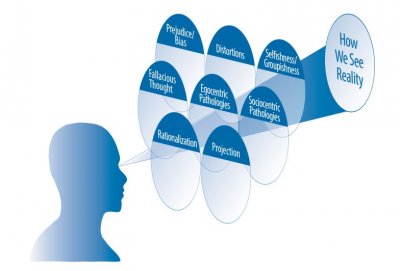 Critical Thinking Therapy stresses the importance of 1) learning the explicit tools of critical thinking for mental health, 2) understanding the complex and rapidly-changing world to which most humans now must adapt, 3) relying on the best thinking done throughout history to address how best to live today, both individually and collectively, and 4) helping clients forge the best path for their own self-fulfillment and achievement at the highest levels of which they are capable.
Critical Thinking Therapy stresses the importance of 1) learning the explicit tools of critical thinking for mental health, 2) understanding the complex and rapidly-changing world to which most humans now must adapt, 3) relying on the best thinking done throughout history to address how best to live today, both individually and collectively, and 4) helping clients forge the best path for their own self-fulfillment and achievement at the highest levels of which they are capable.
Consequently, in addition to teaching clients explicit critical thinking tools, Critical Thinking Therapists are able, through their own developed critical thinking skills, to select and employ the best therapeutic approaches that have come to us through such diverse fields as psychology, philosophy, sociology, biology, the fine arts, and anthropology. They do not rely uncritically on any given field or school of thought, but rather learn to appropriate and build upon the best ideas relevant to mental health that important thinkers (past and present) from various fields have offered.
 In short, Critical Thinking Therapy relies both on foundational universal tools for reasoning, and on the best thinking that has been done about mental health by theoreticians across various fields of study. Consider these examples:
In short, Critical Thinking Therapy relies both on foundational universal tools for reasoning, and on the best thinking that has been done about mental health by theoreticians across various fields of study. Consider these examples:
- We advocate for Rational Emotive Behavior Therapy, because it offers sound therapeutic techniques for taking command of one’s neuroses and mental pathologies by employing some essential critical thinking concepts.
- We highlight parts of existentialism as linked to the vital importance of finding and pursuing one’s higher purposes in life.
- We rely on some classic works from antiquity for early critical thinking theory, including Socratic thought and Stoic philosophy.
- We see the importance of learning to navigate the many essential domains of human thought within which all of us must reason well to be mentally healthy – including how we think about and manage money, how we think about the economic systems that drive much of what humans do, how we think about sexuality, love, parenting, education, learning, technology, creativity, how we think about ourselves in relationship with the rest of the world, and how we relate to ourselves.
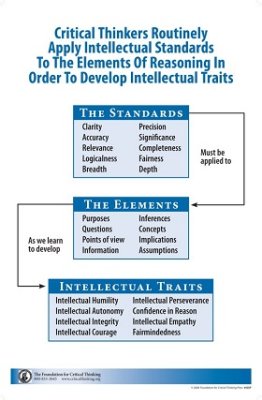 Critical Thinking Therapy focuses on the importance of living according to the meaning and purpose that one gives to one’s life, as well as the human responsibility to live ethically. It recognizes humans as living in nature, as part of nature, and apprehends the significance of appreciating and protecting nature if we are to benefit from it in the ways that our physical and mental health require. Critical Thinking Therapy acknowledges the dangers posed by addiction to social media, gaming, and other virtual realities; recreational drugs; processed foods; and any other numbing escape which impedes humans in their ability to create significant meaning in life that brings inborn pleasure and a sense of fulfillment. All of these understandings are essential to mental health.
Critical Thinking Therapy focuses on the importance of living according to the meaning and purpose that one gives to one’s life, as well as the human responsibility to live ethically. It recognizes humans as living in nature, as part of nature, and apprehends the significance of appreciating and protecting nature if we are to benefit from it in the ways that our physical and mental health require. Critical Thinking Therapy acknowledges the dangers posed by addiction to social media, gaming, and other virtual realities; recreational drugs; processed foods; and any other numbing escape which impedes humans in their ability to create significant meaning in life that brings inborn pleasure and a sense of fulfillment. All of these understandings are essential to mental health.
In closing, through Critical Thinking Therapy, clinicians are able to directly use explicit tools of critical thinking to help clients intervene in pathological or neurotic thinking. Clients themselves are encouraged to internalize and use the tools of critical thinking as a central part of becoming mentally well. Further, through a robust conception of critical thinking, therapist and clients alike can learn to effectively assess all existing therapeutic techniques which purport to improve one’s mental health.
{"id":"5739","title":"How Critical Thinking Therapy Is Different","author":"","content":"<p class=\"MsoNormal\"><span style=\"font-size: large;\"><img style=\"float: left; margin-right: 10px; margin-top: 5px; margin-bottom: 30px;\" src=\"https://www.criticalthinking.org/data/courses/Distorting_Lenses_Diagram.jpg\" alt=\"\" width=\"300\" height=\"203\" />Critical Thinking Therapy stresses the importance of 1) learning the explicit tools of critical thinking for mental health, 2) understanding the complex and rapidly-changing world to which most humans now must adapt, 3) relying on the best thinking done throughout history to address how best to live today, both individually and collectively, and 4) helping clients forge the best path for their own self-fulfillment and achievement at the highest levels of which they are capable.</span></p>\r\n<p class=\"MsoNormal\"><span style=\"font-size: large;\">Consequently, in addition to teaching clients explicit critical thinking tools, Critical Thinking Therapists are able, through their own developed critical thinking skills, to select and employ the best therapeutic approaches that have come to us through such diverse fields as psychology, philosophy, sociology, biology, the fine arts, and anthropology. They do not rely uncritically on any given field or school of thought, but rather learn to appropriate and build upon the best ideas relevant to mental health that important thinkers (past and present) from various fields have offered. <br /></span></p>\r\n<p class=\"MsoNormal\"><span style=\"font-size: large;\"><img style=\"float: right; margin-left: 10px; margin-top: 5px; margin-bottom: 15px;\" src=\"https://www.criticalthinking.org/data/courses/WOman_working_calmly.jpg\" alt=\"\" width=\"200\" height=\"300\" /></span><span style=\"font-size: large;\">In short, Critical Thinking Therapy relies both on foundational universal tools for reasoning, and on the best thinking that has been done about mental health by theoreticians across various fields of study.</span><span style=\"font-size: large;\"> Consider these examples:</span></p>\r\n<ul>\r\n<li class=\"MsoNormal\" style=\"padding-left: 30px;\"><span style=\"font-size: large;\">We advocate for Rational Emotive Behavior Therapy, because it offers sound therapeutic techniques for taking command of one’s neuroses and mental pathologies by employing some </span><span style=\"font-size: large;\">essential </span><span style=\"font-size: large;\">critical thinking concepts. </span></li>\r\n<li class=\"MsoNormal\" style=\"padding-left: 30px;\"><span style=\"font-size: large;\">We highlight parts of existentialism as linked to the vital importance of finding and pursuing one’s higher purposes in life. </span></li>\r\n<li class=\"MsoNormal\" style=\"padding-left: 30px;\"><span style=\"font-size: large;\">We rely on some classic works from antiquity for early critical thinking theory, including Socratic thought and Stoic philosophy. </span></li>\r\n<li class=\"MsoNormal\" style=\"padding-left: 30px;\"><span style=\"font-size: large;\">We see the importance of learning to navigate the many essential domains of human thought within which all of us must reason well to be mentally healthy – including how we </span><span style=\"font-size: large;\">think about and manage money, how we think about the economic system</span><span style=\"font-size: large;\">s that drive much of what humans do, how we think about sexuality, love, parenting, education, learning, technology, creativity, how we think about ourselves in relationship with the rest of the world, and how we relate to ourselves.</span></li>\r\n</ul>\r\n<p class=\"MsoNormal\"><span style=\"font-size: large;\"><img style=\"margin-right: 15px; margin-top: 4px; margin-bottom: 75px; float: left;\" src=\"https://www.criticalthinking.org/data/courses/Elmnts_Stndrds_Traits_Diagram_7.jpg\" alt=\"\" width=\"200\" height=\"305\" /></span><span style=\"font-size: large;\">Critical Thinking Therapy focuses on the importance of living according to the meaning and purpose that one gives to one’s life, as well as the human responsibility to live ethically. It recognizes humans as living in nature, as part of nature, and apprehends the significance of appreciating and protecting nature if we are to benefit from it in the ways that our physical and mental health require. Critical Thinking Therapy acknowledges the dangers posed by addiction to social media, gaming, and other virtual realities; recreational drugs; processed foods; and any other numbing escape which impedes humans in their ability to create significant meaning in life that brings inborn pleasure and a sense of fulfillment. </span><span style=\"font-size: large;\">All of these understandings are essential to mental health. </span></p>\r\n<p class=\"MsoNormal\"><span style=\"font-size: large;\">In closing, through Critical Thinking Therapy, clinicians are able to directly use explicit tools of critical thinking to help clients intervene in pathological or neurotic thinking. Clients themselves are encouraged to internalize and use the tools of critical thinking as a central part of becoming mentally well. Further, through a robust conception of critical thinking, therapist and clients alike can learn to effectively assess all existing therapeutic techniques which purport to improve one’s mental health.</span></p>","public_access":"1","public_downloads":"0","sku":"","files":[],"images":[]}
Synopsis
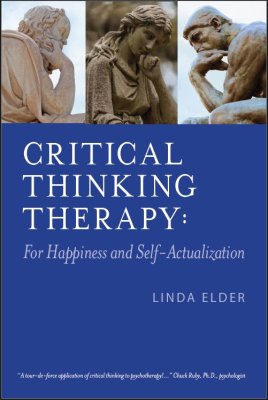 This book introduces a substantive theory of critical thinking to the field of mental health therapy. It details a broad, integrated set of critical thinking tools for use in self-therapy and professional therapy. It is for the individual seeking a more enlightened, more fulfilled, less fearful, and less self-defeating orientation to the world. It is also for those who are aware that they are not now reaching their potential and who seek a self-actualizing frame of mind. To this point, only some of the many tools of critical thinking have made their way into mental health therapies, mainly through cognitive behavioral therapies; this book addresses that shortfall by vastly broadening and deepenening the critical thinking concepts and principles explicitly available to therapists. It is therefore recommended for use by therapists with clients, as well as for clients and individuals working alone.
This book introduces a substantive theory of critical thinking to the field of mental health therapy. It details a broad, integrated set of critical thinking tools for use in self-therapy and professional therapy. It is for the individual seeking a more enlightened, more fulfilled, less fearful, and less self-defeating orientation to the world. It is also for those who are aware that they are not now reaching their potential and who seek a self-actualizing frame of mind. To this point, only some of the many tools of critical thinking have made their way into mental health therapies, mainly through cognitive behavioral therapies; this book addresses that shortfall by vastly broadening and deepenening the critical thinking concepts and principles explicitly available to therapists. It is therefore recommended for use by therapists with clients, as well as for clients and individuals working alone.
Critical Thinking Therapy: For Happiness and Self-Actualization employs the most powerful concepts in critical thinking, offers an integrated and integrating theory of mind, provides essential tools for critiquing all other therapies, and advances the broad range of critical thinking skills within mental health. This new therapy has the potential to revolutionize how we see mental health therapies across the board, and even how we conceptualize mental health itself.

{"id":"4921","title":"Synopsis","author":"","content":"<p><span style=\"font-size: large;\"><a href=\"https://www.criticalthinking.org/critical-thinking-therapy-book\" target=\"_blank\"><img style=\"float: right; margin-bottom: 15px; margin-left: 20px;\" src=\"https://www.criticalthinking.org/data/courses/CT_Therapy_Cover_2.jpg\" alt=\"\" width=\"245\" height=\"365\" /></a>This book introduces a substantive theory of critical thinking to the field of mental health therapy. It details a broad, integrated set of critical thinking tools for use in self-therapy and professional therapy. It is for the individual seeking a more enlightened, more fulfilled, less fearful, and less self-defeating orientation to the world. It is also for those who are aware that they are not now reaching their potential and who seek a self-actualizing frame of mind. To this point, only some of the many tools of critical thinking have made their way into mental health therapies, mainly through cognitive behavioral therapies; this book addresses that shortfall by vastly broadening and deepenening the critical thinking concepts and principles explicitly available to therapists. It is therefore recommended for use by therapists with clients, as well as for clients and individuals working alone.</span><br /><br /><span style=\"font-size: large;\"><em><span style=\"font-size: large;\">Critical Thinking Therapy: For Happiness and Self-Actualization</span></em> employs the most powerful concepts in critical thinking, offers an integrated and integrating theory of mind, provides essential tools for critiquing all other therapies, and advances the broad range of critical thinking skills within mental health. This new therapy has the potential to revolutionize how we see mental health therapies across the board, and even how we conceptualize mental health itself.</span></p>\r\n<p style=\"text-align: center;\"><span style=\"font-size: large;\"><a href=\"https://www.criticalthinking.org/critical-thinking-therapy-book\" target=\"_blank\"><img style=\"vertical-align: middle; margin-top: 17px;\" src=\"https://www.criticalthinking.org/data/courses/Read_More__Purchase_button.jpg\" alt=\"\" width=\"350\" height=\"49\" /></a><a href=\"https://www.criticalthinking.org/critical-thinking-therapy-book\" target=\"_blank\"><br /></a></span></p>","public_access":"1","public_downloads":"0","sku":"","files":[],"images":[]}

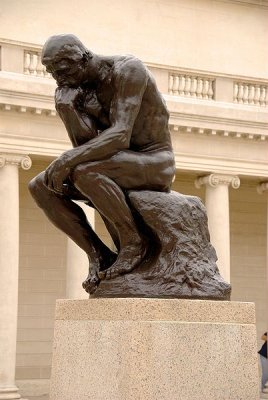 In our pathological world, mental suffering comprises an epidemic of the human spirit. Critical Thinking Therapy assumes that gaining healthy command of one's life requires developing competent control of one's thinking, and it therefore uses the explicit concepts and principles of critical thinking to help humans take stewardship of their emotional lives, achieve mental wellbeing, and realize all of which they are capable as unique individuals.
In our pathological world, mental suffering comprises an epidemic of the human spirit. Critical Thinking Therapy assumes that gaining healthy command of one's life requires developing competent control of one's thinking, and it therefore uses the explicit concepts and principles of critical thinking to help humans take stewardship of their emotional lives, achieve mental wellbeing, and realize all of which they are capable as unique individuals. Our deeply flawed human world can demoralize and exhaust us. We create masses of social rules and admonitions, many ridiculous, and then impose them on ourselves and each other. Few people are taught how to reasonably pursue and balance basic needs and goals, such as how to manage time, health, and finances; how to solve complex problems in our lives; how to navigate conflict; and how to justly and effectively parent a child. Few people learn to deeply examine their capacities and develop as unique authentic individuals.
Our deeply flawed human world can demoralize and exhaust us. We create masses of social rules and admonitions, many ridiculous, and then impose them on ourselves and each other. Few people are taught how to reasonably pursue and balance basic needs and goals, such as how to manage time, health, and finances; how to solve complex problems in our lives; how to navigate conflict; and how to justly and effectively parent a child. Few people learn to deeply examine their capacities and develop as unique authentic individuals.
 frequently harming them. Therapeutic programs for mental health should be designed to, as soon and as much as possible, move the client away from routine professional therapy sessions and toward healthy self-control and self-development using the tools of critical thinking. Critical Thinking Therapists are interested in ideas and how ideas affect behavior. They are coaches assisting clients in internalizing ideas that make sense and stand the test of reason. They are facilitators of self-empowerment through the tools of reasonability.
frequently harming them. Therapeutic programs for mental health should be designed to, as soon and as much as possible, move the client away from routine professional therapy sessions and toward healthy self-control and self-development using the tools of critical thinking. Critical Thinking Therapists are interested in ideas and how ideas affect behavior. They are coaches assisting clients in internalizing ideas that make sense and stand the test of reason. They are facilitators of self-empowerment through the tools of reasonability.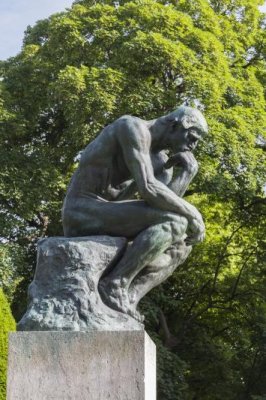 Critical thinking refers to reasoning (thinking which seeks to pursue purposes effectively, to answer questions, to understand, to solve problems) that adheres to standards of excellence (criteria for thinking). It entails the ability to explicitly take one’s thinking apart (into elements such as assumptions, questions, data, inferences, etc.) and examine each part for quality through intellectual standards (such as clarity, accuracy, relevance, breadth, depth, logicality, fairness, significance, sufficiency, etc.) It includes fairmindedness, since critical thinkers strive to consider relevant viewpoints in good faith, as well as to regard the rights and needs of others.
Critical thinking refers to reasoning (thinking which seeks to pursue purposes effectively, to answer questions, to understand, to solve problems) that adheres to standards of excellence (criteria for thinking). It entails the ability to explicitly take one’s thinking apart (into elements such as assumptions, questions, data, inferences, etc.) and examine each part for quality through intellectual standards (such as clarity, accuracy, relevance, breadth, depth, logicality, fairness, significance, sufficiency, etc.) It includes fairmindedness, since critical thinkers strive to consider relevant viewpoints in good faith, as well as to regard the rights and needs of others.  It isn’t that mental health professionals never use critical thinking; in fact, all the best therapeutic approaches to mental health have a direct relationship with critical thinking. Clinicians, however, often do not choose the best mental health therapies, because they are frequently unclear as to the standards they should use in deciding on the best counseling strategies. Moreover, even when therapists select the best mental health therapies, they often don't apply them effectively – for this also requires critical thinking. And even the best approaches to mental health have limitations, the identification of which again demands critical thinking.
It isn’t that mental health professionals never use critical thinking; in fact, all the best therapeutic approaches to mental health have a direct relationship with critical thinking. Clinicians, however, often do not choose the best mental health therapies, because they are frequently unclear as to the standards they should use in deciding on the best counseling strategies. Moreover, even when therapists select the best mental health therapies, they often don't apply them effectively – for this also requires critical thinking. And even the best approaches to mental health have limitations, the identification of which again demands critical thinking.
 4. Using such archaic tools as the Rorschach inkblot test, which has no scientific evidence to support its employment; in the process, these clinicians make illogical deductions that can lead the patient in fruitless or even dangerous directions.
4. Using such archaic tools as the Rorschach inkblot test, which has no scientific evidence to support its employment; in the process, these clinicians make illogical deductions that can lead the patient in fruitless or even dangerous directions.  Critical Thinking Therapy stresses the importance of 1) learning the explicit tools of critical thinking for mental health, 2) understanding the complex and rapidly-changing world to which most humans now must adapt, 3) relying on the best thinking done throughout history to address how best to live today, both individually and collectively, and 4) helping clients forge the best path for their own self-fulfillment and achievement at the highest levels of which they are capable.
Critical Thinking Therapy stresses the importance of 1) learning the explicit tools of critical thinking for mental health, 2) understanding the complex and rapidly-changing world to which most humans now must adapt, 3) relying on the best thinking done throughout history to address how best to live today, both individually and collectively, and 4) helping clients forge the best path for their own self-fulfillment and achievement at the highest levels of which they are capable. In short, Critical Thinking Therapy relies both on foundational universal tools for reasoning, and on the best thinking that has been done about mental health by theoreticians across various fields of study. Consider these examples:
In short, Critical Thinking Therapy relies both on foundational universal tools for reasoning, and on the best thinking that has been done about mental health by theoreticians across various fields of study. Consider these examples: Critical Thinking Therapy focuses on the importance of living according to the meaning and purpose that one gives to one’s life, as well as the human responsibility to live ethically. It recognizes humans as living in nature, as part of nature, and apprehends the significance of appreciating and protecting nature if we are to benefit from it in the ways that our physical and mental health require. Critical Thinking Therapy acknowledges the dangers posed by addiction to social media, gaming, and other virtual realities; recreational drugs; processed foods; and any other numbing escape which impedes humans in their ability to create significant meaning in life that brings inborn pleasure and a sense of fulfillment. All of these understandings are essential to mental health.
Critical Thinking Therapy focuses on the importance of living according to the meaning and purpose that one gives to one’s life, as well as the human responsibility to live ethically. It recognizes humans as living in nature, as part of nature, and apprehends the significance of appreciating and protecting nature if we are to benefit from it in the ways that our physical and mental health require. Critical Thinking Therapy acknowledges the dangers posed by addiction to social media, gaming, and other virtual realities; recreational drugs; processed foods; and any other numbing escape which impedes humans in their ability to create significant meaning in life that brings inborn pleasure and a sense of fulfillment. All of these understandings are essential to mental health.  This book introduces a substantive theory of critical thinking to the field of mental health therapy. It details a broad, integrated set of critical thinking tools for use in self-therapy and professional therapy. It is for the individual seeking a more enlightened, more fulfilled, less fearful, and less self-defeating orientation to the world. It is also for those who are aware that they are not now reaching their potential and who seek a self-actualizing frame of mind. To this point, only some of the many tools of critical thinking have made their way into mental health therapies, mainly through cognitive behavioral therapies; this book addresses that shortfall by vastly broadening and deepenening the critical thinking concepts and principles explicitly available to therapists. It is therefore recommended for use by therapists with clients, as well as for clients and individuals working alone.
This book introduces a substantive theory of critical thinking to the field of mental health therapy. It details a broad, integrated set of critical thinking tools for use in self-therapy and professional therapy. It is for the individual seeking a more enlightened, more fulfilled, less fearful, and less self-defeating orientation to the world. It is also for those who are aware that they are not now reaching their potential and who seek a self-actualizing frame of mind. To this point, only some of the many tools of critical thinking have made their way into mental health therapies, mainly through cognitive behavioral therapies; this book addresses that shortfall by vastly broadening and deepenening the critical thinking concepts and principles explicitly available to therapists. It is therefore recommended for use by therapists with clients, as well as for clients and individuals working alone. “Who doesn’t want to live a happier life in work, parenting, friendships, finances and all of its dimensions? In Critical Thinking Therapy, Linda Elder blends her extensive theoretical knowledge and teaching experiences to guide readers on new ways to achieve these goals–using explicit tools for better thinking. Her sane advice and easy exercises, if taken seriously, should help pave the way towards better mental well-being and greater self-fulfillment.”
“Who doesn’t want to live a happier life in work, parenting, friendships, finances and all of its dimensions? In Critical Thinking Therapy, Linda Elder blends her extensive theoretical knowledge and teaching experiences to guide readers on new ways to achieve these goals–using explicit tools for better thinking. Her sane advice and easy exercises, if taken seriously, should help pave the way towards better mental well-being and greater self-fulfillment.” “This book is written with immense skill and clarity, is beautifully set out, including many activities and exercises that encourage self-awareness and knowledge, with delightful photos and images—this book could be considered by many as a Self-Help Workshop, Nourishment for the Intellect, and in parts—a Spa for the Mind! Incorporating many elements of the pioneering and groundbreaking approach of Rational Emotive Behavior Therapy, yet primarily focused on presenting Critical Thinking’s unique and particular aspects, elements and emphases, this book can indeed be a significant and powerful contribution to people who choose to create more meaningful and satisfying lives."
“This book is written with immense skill and clarity, is beautifully set out, including many activities and exercises that encourage self-awareness and knowledge, with delightful photos and images—this book could be considered by many as a Self-Help Workshop, Nourishment for the Intellect, and in parts—a Spa for the Mind! Incorporating many elements of the pioneering and groundbreaking approach of Rational Emotive Behavior Therapy, yet primarily focused on presenting Critical Thinking’s unique and particular aspects, elements and emphases, this book can indeed be a significant and powerful contribution to people who choose to create more meaningful and satisfying lives."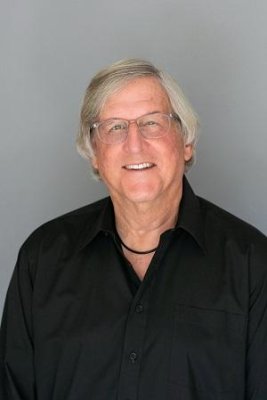 “I have often wished there was a ‘magic wand’ that I could wave over the world to help people transition from being mere believers in all forms of nonsense to become effective critical thinkers. Linda Elder’s clear and instructive book is as close to the magic wand as we’re likely to get, a gift for which we can be grateful. Leading readers along the path to develop the profound skills of increasing the quality of our thinking and our mental health, Elder illuminates how to integrate these skills into managing the challenges of living we all inevitably face. Don’t just read this valuable book—study it and discover the many rewards of knowing how to better use your mind’s potential.”
“I have often wished there was a ‘magic wand’ that I could wave over the world to help people transition from being mere believers in all forms of nonsense to become effective critical thinkers. Linda Elder’s clear and instructive book is as close to the magic wand as we’re likely to get, a gift for which we can be grateful. Leading readers along the path to develop the profound skills of increasing the quality of our thinking and our mental health, Elder illuminates how to integrate these skills into managing the challenges of living we all inevitably face. Don’t just read this valuable book—study it and discover the many rewards of knowing how to better use your mind’s potential.” “A tour-de-force application of critical thinking to psychotherapy! The human change processes are fraught with mysteries and unpredictability, but the tools in this book ensure those uncertainties are minimized. It presents a strong and important foundation for psychotherapists interested in helping people outside the failed medical and disease model of human distress. A must read!"
“A tour-de-force application of critical thinking to psychotherapy! The human change processes are fraught with mysteries and unpredictability, but the tools in this book ensure those uncertainties are minimized. It presents a strong and important foundation for psychotherapists interested in helping people outside the failed medical and disease model of human distress. A must read!" Beginning in the Fall of 2025, we will offer online courses in Critical Thinking Therapy, both for mental health professionals and for anyone interested in leveraging critical thinking toward greater happiness and self-actualization.
Beginning in the Fall of 2025, we will offer online courses in Critical Thinking Therapy, both for mental health professionals and for anyone interested in leveraging critical thinking toward greater happiness and self-actualization.  We offer online professional development customized to the needs of mental health therapists, faculty in mental-health education, and anyone seeking to apply practical reasoning tools to mental health in the context of their work.
We offer online professional development customized to the needs of mental health therapists, faculty in mental-health education, and anyone seeking to apply practical reasoning tools to mental health in the context of their work.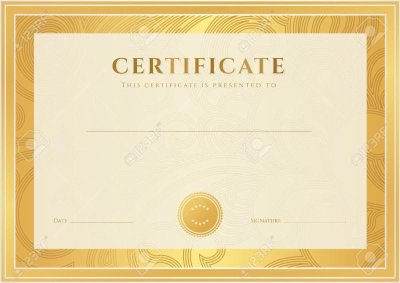 We will soon offer a program for mental health practitioners to become certified in their understanding of critical thinking fundamentals in the context of mental health. This will bear important similarities to our more general Critical Thinking Certification program, but with a focus on practitioners' knowledge of how to apply critical thinking to mental health therapy.
We will soon offer a program for mental health practitioners to become certified in their understanding of critical thinking fundamentals in the context of mental health. This will bear important similarities to our more general Critical Thinking Certification program, but with a focus on practitioners' knowledge of how to apply critical thinking to mental health therapy.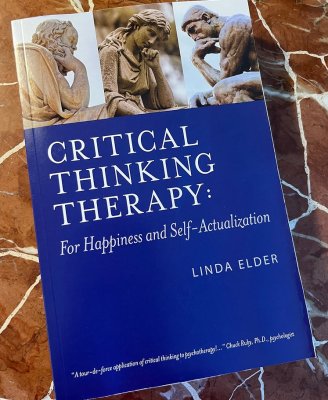 Beginning May 7, 2025, we will begin hosting weekly meetings, titled, "Critical Thinking Therapy for Happiness and Self-Actualization," for those interested in discussing how critical thinking can be applied to mental wellness and self-actualization.
Beginning May 7, 2025, we will begin hosting weekly meetings, titled, "Critical Thinking Therapy for Happiness and Self-Actualization," for those interested in discussing how critical thinking can be applied to mental wellness and self-actualization. ![]()
![]()
![]()